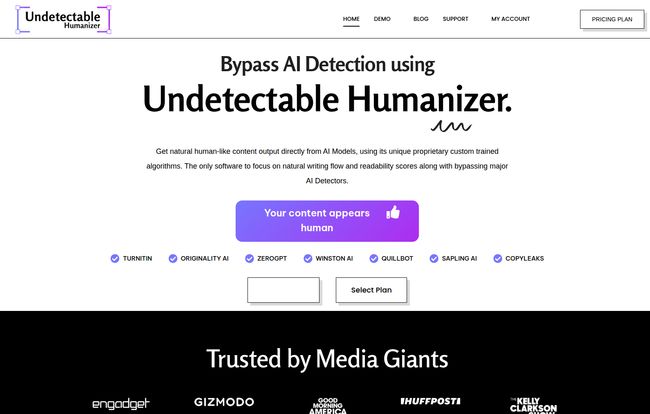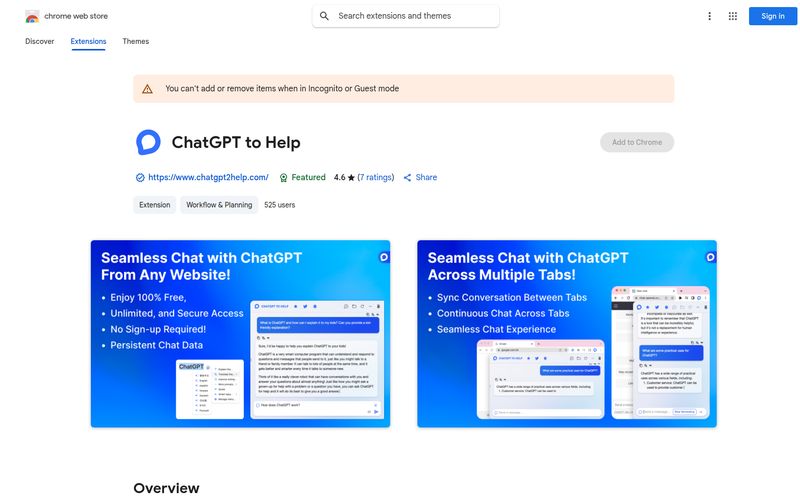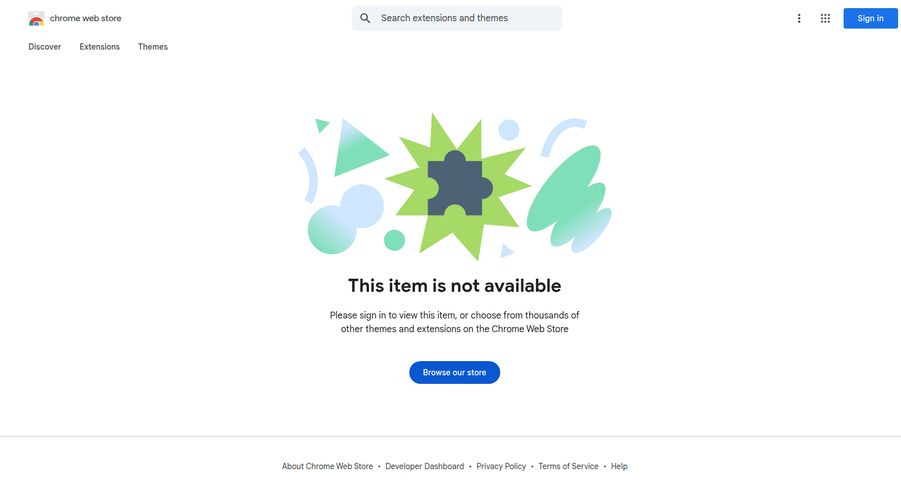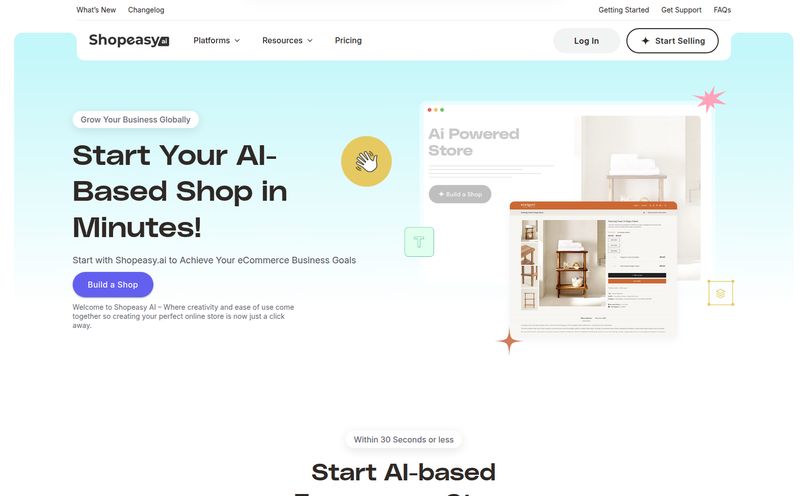We're all swimming in a sea of AI-generated content, and frankly, a lot of it is just... bland. It has the personality of a beige wall. As an SEO who’s been in the trenches for years, I've watched the landscape shift from keyword-stuffing nightmares to this new era of robotic prose. We went from fighting for the top spot on Google to also fighting to not sound like a machine while doing it.
There's this constant, low-grade anxiety, right? Will Google penalize my site? Will my readers bounce because the writing is soulless? Will my clients think I’m just hitting ‘generate’ and calling it a day? It's a lot. So, whenever a tool pops up claiming it can take AI text and give it a human soul, my ears perk up. Enter Undetectable Humanizer. The name is bold, I'll give it that. But does it actually deliver on its promise? I decided to take a look.
What is Undetectable Humanizer, Really?
At first glance, you might lump it in with the countless AI paraphrasers and spinners out there. But that’s not quite what’s happening under the hood. From what I’ve gathered, Undetectable Humanizer isn’t just swapping out synonyms or rephrasing sentences. It uses its own custom-trained algorithms to generate new, human-like content based on your initial AI input. It’s less like putting a text through a translator and more like giving a human editor the AI draft as a brief and saying, “Here, make this sound good.”
The goal is twofold: create content that reads naturally and sails past AI detectors like Turnitin or Originality.ai. A pretty tall order in today's environment.
The Features That Actually Matter to a Pro
A flashy dashboard is nice, but I care about results. Traffic. Conversions. Making my life easier. Here's what stood out to me in the Undetectable Humanizer toolkit.
Bypassing the AI Detection Police
This is the headline feature, isn't it? The big promise. The tool is built to specifically address the ever-present fear of getting flagged. The constant cat-and-mouse game between AI content generators and AI detectors is exhausting. Having a tool that focuses on creating text that is fundamentally more human in its structure, word choice, and flow is a different approach than just trying to trick the latest detection algorithm. Its a more sustainable strategy, in my opinion.
More Than Just Undetectable, It's Readable
Here’s something I think is even more important than dodging detectors: readability. Google’s Helpful Content Update and core updates have been shouting this from the rooftops. Content for humans, by humans (or at least, that feels like it's for humans). Undetectable Humanizer puts a big emphasis on generating text with a high readability score. This means clearer sentences, better flow, and content that people actually want to read. That’s what keeps users on your page, lowers bounce rates, and sends all those juicy positive signals to Google.

Visit Undetectable Humanizer
Your Brand Voice, But Automated
Now this is cool. The Brand Voice feature is a godsend for agencies or businesses that need to maintain a consistent tone across tons of content. You can feed it examples of your writing style, and it learns to mimic it. For my agency, this is a huge time-saver. Instead of me having to rewrite every piece of AI-assisted content to fit a client's specific voice—whether it's quirky and casual or formal and corporate—the tool does a lot of the heavy lifting. The Team Collaboration feature also means my whole team can work from the same style guides and workbooks. Very handy.
A Whole Sandbox of AI Models
I was genuinely impressed by this. You’re not locked into one single AI. The platform gives you access to a whole suite of the latest and greatest models: GPT-4o, GPT-4 Turbo, Gemini Pro, and even the full Claude 3 family (Haiku, Sonnet, and Opus). Some days, I find Claude is more creative. Other times, GPT-4o is better for technical accuracy. Having the flexibility to choose the best engine for the job without juggling five different subscriptions is a massive plus.
Let's Talk Money: The Pricing Breakdown
Alright, the all-important question: what's this going to cost? The pricing is pretty straightforward and tiered based on word count, which is a model we're all familiar with. One thing to love: all features are included in every plan, from Basic to Pro. You're not getting a watered-down version if you start small.
| Plan | Price (Monthly) | Word Count | Best For |
|---|---|---|---|
| Basic | $30 | 24,000 words | Solo bloggers, small projects |
| Standard | $50 | 48,000 words | Freelancers, small marketing teams |
| Pro | $80 | 100,000 words | Agencies, high-volume content creators |
| Unlimited Addon | +$100 | Unlimited words | The content machines among us |
A couple of things to keep in mind here. You do need to bring your own OpenAI API key. This isn’t a huge deal for most people in this space, but it’s an extra step and a potential extra cost to consider. Also, the word credits you buy are split across all the available AI models. So it's not 24,000 words per model, but 24,000 words total. Just something to be aware of when you're planning your workflow.
So, Who Is This Tool Really For?
After playing around with it, I see a few key groups who would get a ton of value from this.
- SEO Professionals and Agencies: Obviously. The ability to scale quality content that's designed to perform well in search and resonate with readers, while maintaining brand voice, is a game-changer.
- Content Marketers: For those of us creating blog posts, social media updates, and email newsletters day in and day out, this can be a massive accelerator. It helps beat writer's block and elevates a first draft instantly.
- Students and Academics: This is an interesting one. For improving the flow and readability of essays or papers (while, of course, ensuring the original ideas and research are your own), this could be a powerful editing assistant.
Frequently Asked Questions
- How does Undetectable Humanizer actually bypass AI detectors?
- It's not just about spinning. It uses proprietary, custom-trained AI models to generate completely new text that mimics human writing patterns, focusing on things like sentence structure variety, perplexity, and burstiness—metrics that detectors look for.
- Do I really need my own API key?
- Yes, as of now, you need to connect your own OpenAI API key to get started. This allows the tool to process your requests through the AI models.
- Is the content produced safe for my website's SEO?
- In my professional opinion, yes, provided you use it correctly. Because the focus is on high-readability and quality, the output is aligned with what Google's Helpful Content System wants to see. It’s far superior to generic, unedited AI output.
- Can I choose which AI model to use for my content?
- Absolutely. You get access to a range of models, including various versions of GPT-4, Gemini, and Claude. You can select the one that best fits your specific task.
- Can it perfectly copy my personal writing style?
- It can get impressively close with the Brand Voice feature. You feed it samples of your writing, and it learns your tone, vocabulary, and cadence. It's not a perfect clone, but it's a fantastic starting point that saves a lot of editing time.
Final Thoughts: A Tool for the New Content Reality?
So, is Undetectable Humanizer the magic wand we've all been waiting for? No, of course not. There's no such thing. You still need a good content strategy. You still need your own expertise and a final human touch to make content truly great.
But is it a powerful, incredibly useful assistant in this new reality of content creation? Absolutely. It bridges the gap between the raw, robotic output of AI and the nuanced, readable content that both users and search engines crave. It’s a tool that acknowledges the power of AI but respects the importance of the human reader.
For me, that’s a win. It's a way to work smarter, not just faster, and to keep the 'human' element at the heart of what we do. And in this industry, that's what it's all about.
References and Sources
- Undetectable Humanizer Official Pricing Page
- Originality.ai - AI Detector for Serious Content Publishers
- Google's Guide to Creating Helpful, Reliable, People-First Content



